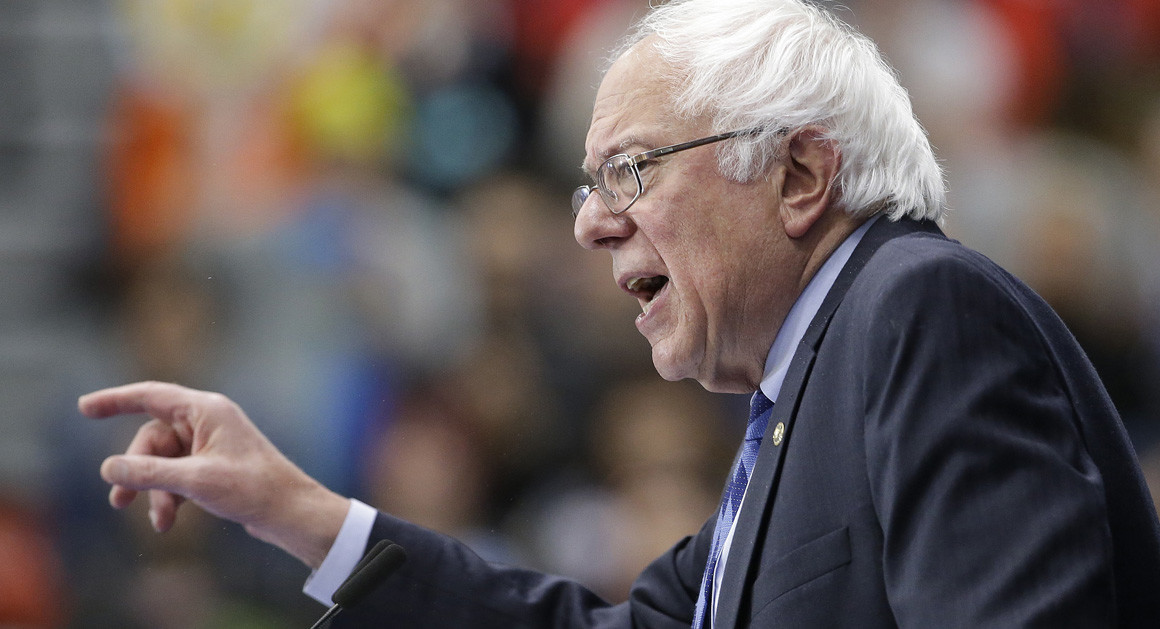JUNE 1, 2016
Photo: AP
Just what is Bernie Sanders’ endgame?
On Tuesday, at a California rally in Santa Cruz, Sanders told his supporters that when the media reports next Tuesday night that “the nominating process is over and Secretary Clinton has won, that is factually incorrect.” Technically, he is right. The nomination will not be officially hers until the third night of the Democratic Convention in Cleveland in July.
But when Sanders argues that Clinton can’t even be called the presumptive nominee because she won’t have reached the requisite quantity of pledged delegates or, as Sanders calls them “real” delegates that were won through caucuses and primaries, he’s living in dreamland.
What will likely push Clinton over the 2,383 delegates mark she needs next Tuesday are superdelegates — Democratic office holders and party officials who are official delegates but who are not voted on by the people and are free to vote for whomever they want. Clinton has 10 times more superdelegates committed to her than Sanders, who has been recently railing against the superdelegate system, arguing that it is simply undemocratic. And he has a valid point. It’s a system that party officials should seriously consider changing for 2020. But not now — we’re in the final minutes of the 4th quarter of the primary season, and whining about rules that have been in place for decades ill becomes him.
Which brings me to a certain sadness when I see how the Sanders campaign is ending up compared to where it began. Yes, he still gets the huge crowds at his rallies, but the optimistic energy of the early days is somehow missing now. His fight to combat income inequality, looking out for the little guy, and holding the rich accountable was inspirational and empowering, reminiscent of the “Yes, we can” spirit of the ’08 Obama campaign. It was a message that needed to be heard (particularly by Hillary Clinton), and it inspired Democrats (particularly younger Democrats) to become active in a campaign with a fire that was the envy of every other candidate out there.
I think that the tone began to change several weeks ago after the delegate convention riot in Nevada where Sanders delegates began to throw chairs and punches when they began to feel that they were being treated unfairly. Instead of condemning his followers’ violent actions, he blamed the Democratic establishment, which he claims is biased against him. He has continued that rant since then, and while he has every right to speak his mind, it has begun to change his image from selfless warrior to that of victim. His campaign is no longer about you and me and has become all about him.
So how is he going to land the plane that is his campaign? How he acts over the next two weeks were be very telling as to his future influence in the party, both for him and for the issues about which he cares so deeply. The Clinton campaign (with an eye to not antagonize Sanders voters) has officially said that Sanders can stay in as long as he wants, but once Clinton goes over the top next Tuesday (and particularly if Sanders loses California), he will be under enormous pressure to withdraw from the race.
Sanders may continue to pursue his pipe dream of hundreds of superdelegates jumping over to his side because he polls better against Trump than does Clinton. But she has been under withering attack from the GOP during the entire campaign. The worst that Trump has said about Sanders is calling him “Crazy Bernie,” just the kind of benevolent thing you’d call your dotty uncle. The “He’s a Socialist! A Communist!” attacks haven’t started yet, but once they do, just see how he then fares against Trump.
Sanders appears poised to have a powerful influence on what the Democratic party will be fighting for over the next few years. But just how powerful all depends on how he lands the plane.












